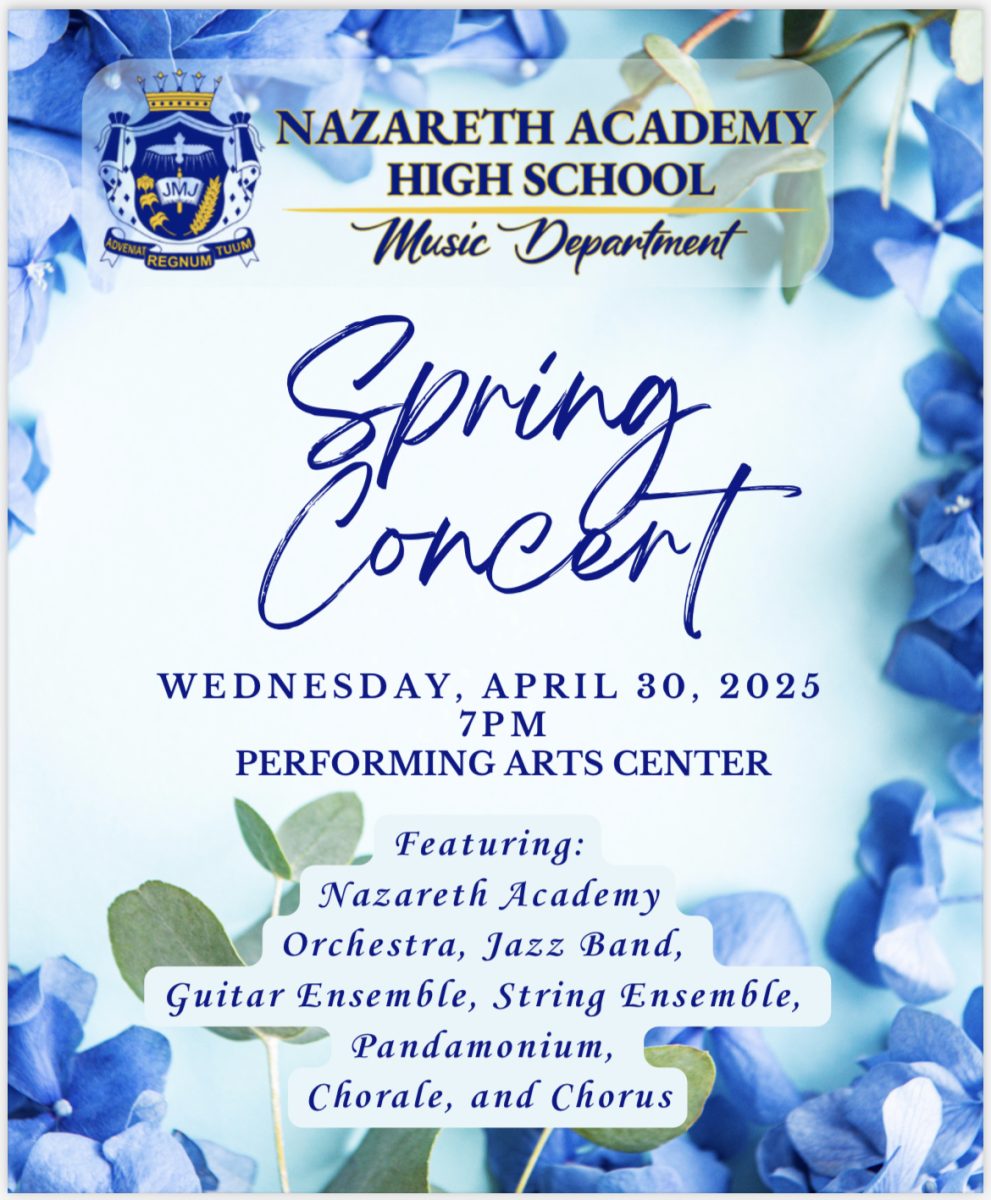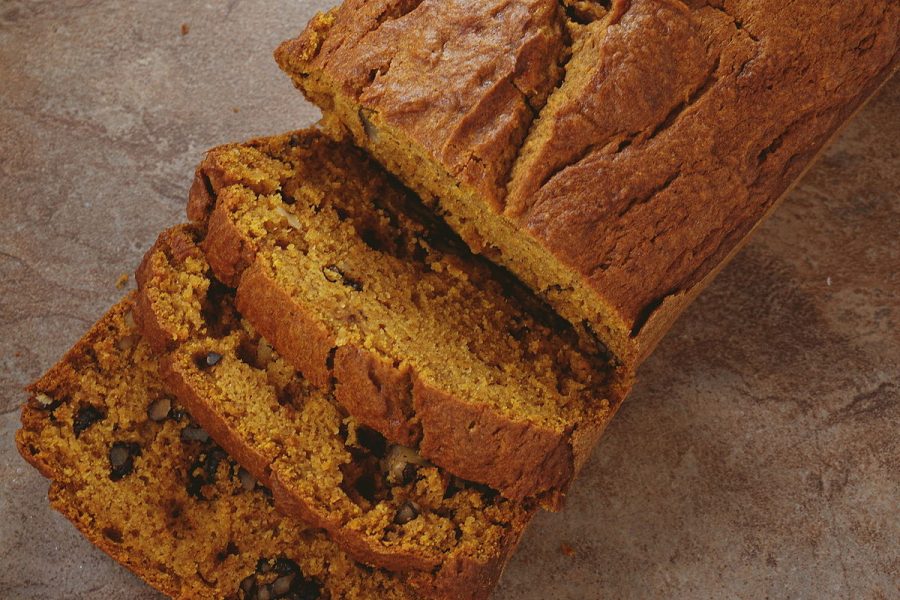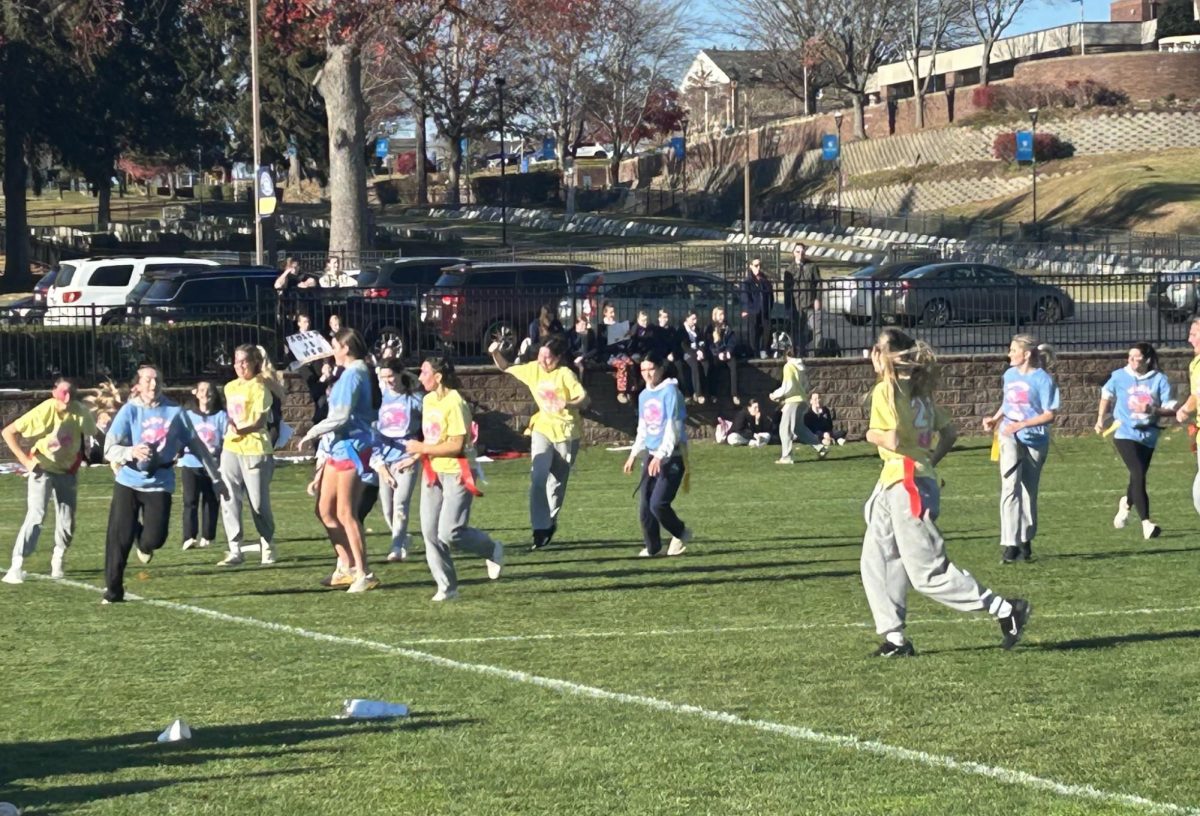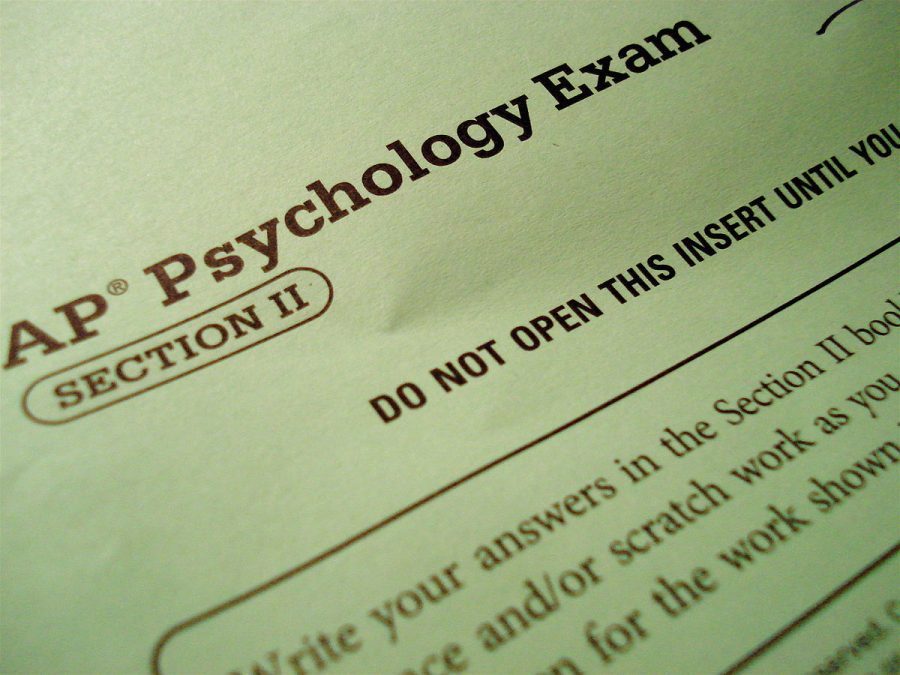AP Study Tips
April 24, 2023
AP Exam week is upon us! Don’t fret, you’ve been working hard all year and you probably know more than you think. To all those who insist on stressing over what to study/cram with such a short time left, though, here are some tips and advice. While I have learned many test-taking strategies over the years and many strategies for the AP tests that I have taken, by no means do I consider myself an expert on the majority of these AP tests, so I reached out and included advice from many of your fellow Naz sisters who have “been there, done that.”
Edit: I plan to include as many tips from as many students and former students as I can but did not want to wait for all of the responses to trickle in to publish this article, so be sure to check back here for any updates on exams that haven’t been covered yet!
English Literature and Composition
Comparative Government & Politics
English Language and Composition
General Tips
AP Daily and AP Classroom videos
These videos are made by AP readers and teachers with tons of experience dealing with the AP exams, so be sure to use this resource! There are two very different approaches I like to take to these videos: watch a video and then write a quick 1-2 sentence summary of the main point you want to remember and, when you get really tired of studying and just want a nap, put on one of the longer unit videos and take a nap. When it comes to cramming – cough cough I mean studying – every little bit of information you can remember helps, so even if you’re on the verge of falling asleep, who knows, maybe you might hear something important that you’ll remember later
Eat a good breakfast/get a good night’s sleep
Basically, this tip is to just take care of yourself. If you stay up late the night before the exam studying, it isn’t going to help because you are going to be exhausted and unable to think clearly during the exam. The same goes for eating – if you are then trying to catch up on sleep or you try to cram instead of eating breakfast, you’re just going to end up with the stomach rumbles during the exam, and if you are anything like me, I can’t think when I’m hungry. Do yourself a favor, eat some fruit or oatmeal or yogurt to keep your mind fresh
Also, if you are able to, eat some fish or nuts. These are high in omega-3 fatty acids which are good for your brain.
Write down some study guides
Not only will you have a handy resource when you have a couple of minutes to study, but just making the study guides forces you to find the most important information and organize it.
Check the scoring guidelines
For any exam in which you have to write an essay or similar FRQ, be sure to check the scoring guidelines for these. These provide a point-for-point breakdown of what you need to have to get a good score. As Mr. Clark loves to say, the scorers will give you points for what they see, rather than looking for reasons to take away points. Oftentimes, you can learn how to “game the system,” and even if you don’t necessarily remember much material, you may be able to still score some points for writing a thesis, citing sources, etc.
Tutoring
Honestly, I find this can be helpful both ways. If you need help understanding a certain topic, find someone who may be able to explain it differently from how you’ve heard it before. On the other hand, if you understand a topic but want to make sure you remember it better, find someone else to tutor; explaining a problem to someone can help further cement the concept in your brain. At Nazareth, the National Honor Society (NHS) and Mu Alpha Theta (Math Honor Society) provide tutoring and, if you are a member, you can tutor as well. There are also programs like Schoolhouse.world where you can provide or receive free peer tutoring.
Don’t Procrastinate
Albeit this may be a bit late to tell you, being only a week out from exams, but if you’re seeing this and you plan to take an AP next year, do take this to heart.
“Do NOT procrastinate, especially if you are taking multiple AP classes. Get your work done as soon as possible because it can really start to pile up. It will be a lot easier and less stressful if you do this.” – Belinda Gerz ’23
US Government/Politics
Heimler’s History has a whole series of videos on AP Gov, more about Heimler under US History
Chemistry
“You know more than you think – don’t freak out – don’t do anything stupid – when in doubt, write about Coloumb’s Law” – Ciara Garvey ’23
“Just stay calm during the test” Ciara Garvey ’23
“Don’t overthink it” – Kailyn Nolen ’23
“Just stay calm and do your best- you know more than you think. It’s just like the practice exams in class!” – Megan Scott ’23
Psychology
English Literature and Composition
Comparative Government & Politics
Statistics
“When it comes to stat, the best advice I have is to underline key words in the questions so you know exactly what you’re being asked to do. I think this is a good way to identify what steps you need to take – types of calculations, answer phrasing, etc – to get to a final answer. There are a lot of different answer phrases to remember, and it can definitely be tough to keep them all straight in your head. For that I would say repetition and practice problems while studying are your best friend. Lastly, even if the AP Classroom questions were tough over the course of the year, don’t be too worried. You know more than you think and can use reason to help make your best guess. Good luck!” – Madeline Scott ‘22
US History
I cannot stress enough how much Heimler’s History will save your life. He posts videos on literally every topic in APUSH, walks you through step by step how to write the SAQ, LEQ, and DBQ, and explains every section of the test so you know what to expect and how to ace the exam. He also has tons of experience as an AP reader, so he can tell you exactly what the readers are looking for when they score your FRQs. Out of all the YouTube channels I’ve found for AP videos, his is by far the most comprehensive and easy to understand.
One tip he suggests that I highly recommend trying is going to the APUSH course and exam description, looking at Learning Objectives under the Unit Guides, and then grabbing a piece of paper and a pen and writing as much as you can remember about the topic. I’d especially recommend you do this for some of the earlier units from Honors that you learned a while ago just to see how much you remember. Not only does writing things down help you remember the material later, but it also is good practice for writing the essays.
Calculus AB + BC
The biggest piece of advice I can give for the Calc exams is to make sure you know the big concepts of calculus. Make sure you aren’t just memorizing how to solve the problems (although this may help), but try to also understand what each function is. The derivative is a rate, it is how much is happening in generally a certain amount of time; thinking of it as a velocity can be very helpful. The integral is adding a bunch of very small things up over a range; think of it as trying to carve something out of a stack of paper. If you can understand these concepts, you will be able to apply these methods to just about any kind of problem College Board can throw at you.
For the Calc FRQs, oftentimes, the scorers are looking specifically for a statement at the end of your response with the answer in context, so be sure to include a sentence with your numerical answer, units, and a phrase explaining your answer like “the rate of change of the [function]” or “the area under the curve from [range]” or “the average value of the function.”
Italian
“Approach it as an AP Lit or AP Lang essay—they care more about how you convey your ideas. Yes grammar and vocab is important but can you tell them things?
Signora does a good job of covering all the material. Review the vocab for each unit and that should be good. Know transition words (cioè, ma, mai, etc) and “filler” words (questo, quello) because that gives better essay flow. Past tense is your best friend.
Her format for the email is perfect. If you do everything she says you should get full credit. Write more if you can.
For the MCQ, the audio plays twice. Answer all the questions at least once by circling in the book. Then as it plays the second time, check your answers and fill in the circles. Speaking is TERRIFYING. We all said different things for the convo and did well. You get one chance.” – Marissa Stauff ’22
English Language and Composition
At this point, you are probably tired of hearing about the AP Lang exam, about to go crazy if you have to write another timed write, and sick of hearing Timm Freitas’s voice. I guarantee you, this is a good thing! (Even if it doesn’t feel like it now) All this time you have spent preparing and practicing for the exam will mean you feel much more comfortable going into the exam.
“The timed writes you will do in class are extremely valuable! They will make you feel totally prepared for the exam and calmer on test day. :)” – Belinda Gerz ’23
Spanish
“Find something to listen to and read that you enjoy and do a lot of that. Also make sure you’re used to all kinds of accents (hardest to get used to for me were North Spain and Chile” – Francesca Ellis ‘23
“Practice your pronunciation, memorize a few transition words, and watch Zachary McCormick’s video on YouTube for review!” – Katherine Braddock ’23
French
Physics
“I would honestly say take your time. Don’t waste time, but you have over 3 hours, so don’t be afraid to use them. Eat a good breakfast and get a good night’s sleep beforehand. When you sit down to take the test, put all your other thoughts outside your head. Put those thoughts on pause and focus on your exam. It is also very important to relax and realize that you know more than you think. You have been preparing for this moment for months, and you wouldn’t be there if you couldn’t do it. And lastly, just do your best! Remember that your worth is not found in an exam score.” – Samantha McDonald ’22
Music Theory
To my fellow music theory peeps, the best advice I personally can give you is to believe in yourself. Having spent the last four years in class with you, I can say for certain that you are all incredible musicians and you really know a lot more than you think you do.
Latin
“My biggest piece of advice for this exam is to relax. Translating in a time crunch can feel impossible, but I promise you that you know way more than you think. You’ve puzzled out translations, sight readings, new vocab words – you are more than capable of a few passages. And if you don’t know, take a guess! I don’t remember much of this exam personally because it was my very last one and I was mentally checked out, but I do remember that guessing served me well at times. And hey, this is likely the last Latin translation work you’ll have to do, so try your best with it! Bonam fortunam!” – Madeline Scott ‘22
“Practice writing for the English ones, and sight reading is annoying, you’ve seen the Latin stuff before, you’ve got this. Don’t stress too hard. You’ve been working all year for this. You got it.” – Gianna Brock ’21













